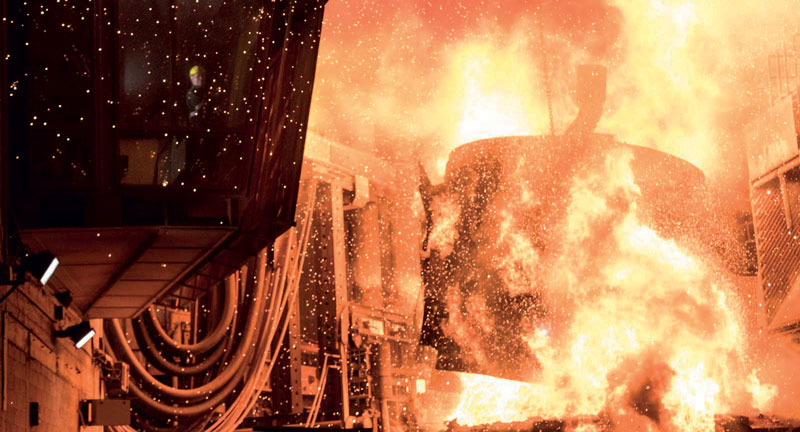Brescia’s Metal Industry Looks Ahead, Beyond the Covid-19 Emergency
The President of Confindustria Brescia, Giuseppe Pasini, underlines the resilience of the ferrous and non-ferrous metallurgy sector during the pandemic, particularly in Northern Italy and in the Brescia area, the European Metalworking Valley, from steel to red metals and aluminium
Giuseppe Pasini is the president of Confindustria Brescia, which groups together the excellence of Italian metallurgy, both ferrous and non-ferrous. Not just the steel industry, where one of the main operators is the Feralpi Group led by Giuseppe Pasini, one of the leading European producers of steel for the building industry with a turnover of 1.3 billion euros. But also the metallurgy of brass, copper, zinc, lead and especially aluminium, a sector which has grown extraordinarily in recent decades.

Let’s start with the central theme of the present day, how is the metallurgical sector in Lombardy and north-eastern Italy facing the economic crisis caused by Covid-19?
“Metallurgy, both ferrous and non-ferrous, is among the sectors with the strongest standing in Italian industry. Steel in particular has shown incredible resilience. In Lombardy and also in north-eastern Italy, according to what my colleagues from Veneto and Friuli tell me, the steel industry, for example, has not suffered great losses in orders and the balance sheets have held up in terms of solidity and profitability, as demonstrated in the recent presentation of Siderweb’s Steel Balance sheets”.

Does this mean there were more damages in 2008?
“At that time, the financial crisis led to a lack of liquidity with global repercussions, since the steel industry in particular was one of the pillars of the Eastern and Western economies. In the pandemic crisis, however, the steel industry held out. During the lockdown we set up an adequate structure to remain competitive. I am referring, for example, to the Task Forces set up in a very tight time frame and the Resilience Committees to provide a structural capacity to react. There are companies which are investing in the long term. This is because in the steel industry it takes 5 to 10 years for investments in the environment or processes to have an impact. We decide today where we will stand 10 years from now, so we need to have clear ideas and be forerunners”.
How does our metal sector compare with German competitors?
“After Germany, Italy is second in Europe, with districts such as Brescia’s, stemming from the transfer of skills by a number of large companies in the area. Germany certainly has a more ancient industrial history, especially in heavy industry, where coalfields made the difference. Moreover, the German system thinks in terms of network, polytechnics and universities are traditionally linked to companies. Furthermore, Germans make us understand the value of the industrial brand, they have created many of them and the most striking example is that of the car, where they have managed to be synonymous with top quality. A company with a strong brand has an extra edge: it is not replaceable as an undifferentiated supplier”.

What is Brescia’s tradition of non-ferrous metallurgy, especially aluminium?
“Brescia is a national record. The companies with share capital in Brescia active in the production and smelting and processing of non-ferrous metals develop over 3 billion in turnover ( according to AIDA data processed by Centro Studi Confindustria Brescia) with a positive social impact. In 2018 the sector employed 9297 people, 3641 in the production sector and 5656 in the casting sector (ISTAT data processed by Centro Studi Confindustria Brescia). The second province of Italy after Brescia, in terms of concentration in the non-ferrous metallurgy sector, is Turin, but far behind with 1500 employees. Large groups in Brescia continue to be a transversal reference point: from recycling, extrusion, foundry and die casting to mechanical processing and finishing, including plant engineering for production and transformation technologies. Aluminium has always been part of our manufacturing core. More than 25 years ago one of the most important international trade fairs dedicated to light metal and its alloys was first held in Brescia”.
What are the markets for Brescia’s aluminium?
There is a great tradition of both foundries and light metal downstream processing. There are many companies operating in the automotive industry, producing components for the international supply chain. First and foremost for the German automotive industry, which has many accredited first level (OEMs) and second level (Tier 1, 2, 3) suppliers in Brescia. And then aluminium for the construction industry, starting with the large international market for curtain walls and outer shells of buildings. The growing use of aluminium in public transport should also be highlighted. For example, in the railway sector in combination with steel for the bodywork and interior components of wagons and in the electrification of tracks and train interior systems themselves”.

Giovanni Marinoni Martin, sector chairman for Metallurgy, Steel and Mining of Confindustria Brescia 
Gabriella Pasotti, President of the mechanics sector of Confindustria Brescia
Let’s conclude with a brief mention of Feralpi, could you tell us in a few words what the strengths of this great company are?
“We have certainly thought about globalisation in good time. As early as the 1970s we were already looking to the German market, selling reinforcing bars and derivatives for the construction market in Germany. In partnership with two entrepreneurs, German steel merchants, we then went in 1992, immediately after the fall of the Berlin Wall, to produce directly in the largest European market after acquiring a company based in Riesa, between Dresden and Leipzig. And we stayed there. Today we have almost thirty years of direct experience on site. There we have brought a bit of typical Italian flexibility. Today we have over 700 employees in Germany, with a series of acquisitions of important customer shares. With regard to Feralpi’s many good qualities, I would also like to mention our concept of partnership with end customers: it is not enough to produce steel with quality, today you also win the competition with service. We process steel according to the specific needs of our customers, we operate in major projects and infrastructures. Finally, people are central to Feralpi, we believe in corporate welfare, and we continue to invest in the protection and active involvement of our employees because their well-being is fundamental to the future of the company”.

